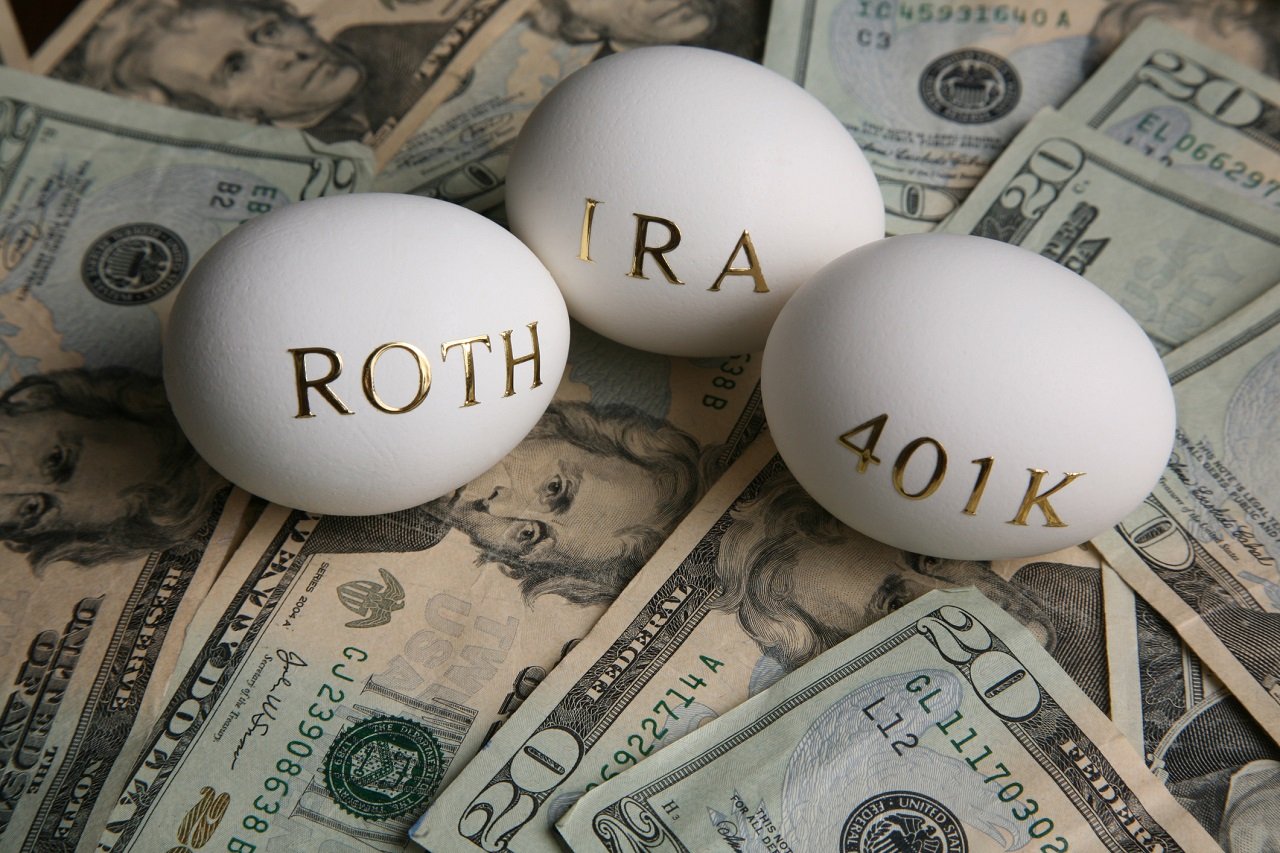
A Roth IRA is a savings account towards your retirement years. What makes a Roth IRA special among other savings accounts is that your money is taxed prior to you placing it into the account but the money can compound within the account tax-free. Additionally, once you are in retirement you can withdraw money from the account without needing to pay taxes on it. For this reason, a Roth IRA is a great investment account for those who believe that they will be in a higher tax bracket during retirement.
A 401k and traditional IRA both offer you the opportunity to also grow your money, within the account, tax-free so how is the Roth IRA different?
The Difference
A Roth IRA differs from a traditional IRA and 401k in the way that your money is taxed. With the Roth IRA, you pay your taxes prior to your money going into the savings account, whereas with the traditional IRA or 401k, your money is not taxed upfront but you pay taxes upon withdrawals from the account.
For individuals who are 70.5 years and older, with a traditional IRA, you are required to withdraw an amount of money whether or not you need the withdrawal. This requirement does not exist with a Roth IRA. Individuals 70.5 years and up also cannot make contributions to a traditional IRA whereas they are able to with a Roth IRA.
Roth IRA’s are excellent for individuals who are self-employed simply due to the fact that 401k’s are only employer-sponsored accounts and cannot be obtained by individuals who fit under the self-employed category.
Eligibility
There are requirements regarding who is eligible for a Roth IRA; a few of these requirements can be found here. Most of the requirements limit the amount of taxable income that you are allowed to have prior to making contributions to a Roth IRA.
Which Account is Best for Me?
A Roth IRA is not the best retirement option for everyone. There are a few key factors that you will need to consider prior to choosing an investment account. First, you will need to determine which account types you are eligible and ineligible for. Then, determine whether or not your employer is willing to match your retirement account contributions. Once you have determined these necessary pieces of information think about your current financial situation and your expectations for the future.
Conclusion
The great part about any retirement savings account is that your money grows through compounding. Different from simple interest, compounding is a form of interest that allows for your money to grow off of the money that is in the account rather than the money that you place in; your money makes money for you. This benefit means that, in the event that you cannot actively contribute to you retirement account, your account will continue to grow on its own at a fixed annual percentage rate.
Determine your retirement needs and explore your many options in order to make an informed investment decision towards your retirement.
If you would like to learn more about how to grow your Roth IRA, consider reading this informative Investopedia article.

Founder Dinis Guarda
IntelligentHQ Your New Business Network.
IntelligentHQ is a Business network and an expert source for finance, capital markets and intelligence for thousands of global business professionals, startups, and companies.
We exist at the point of intersection between technology, social media, finance and innovation.
IntelligentHQ leverages innovation and scale of social digital technology, analytics, news, and distribution to create an unparalleled, full digital medium and social business networks spectrum.
IntelligentHQ is working hard, to become a trusted, and indispensable source of business news and analytics, within financial services and its associated supply chains and ecosystems











